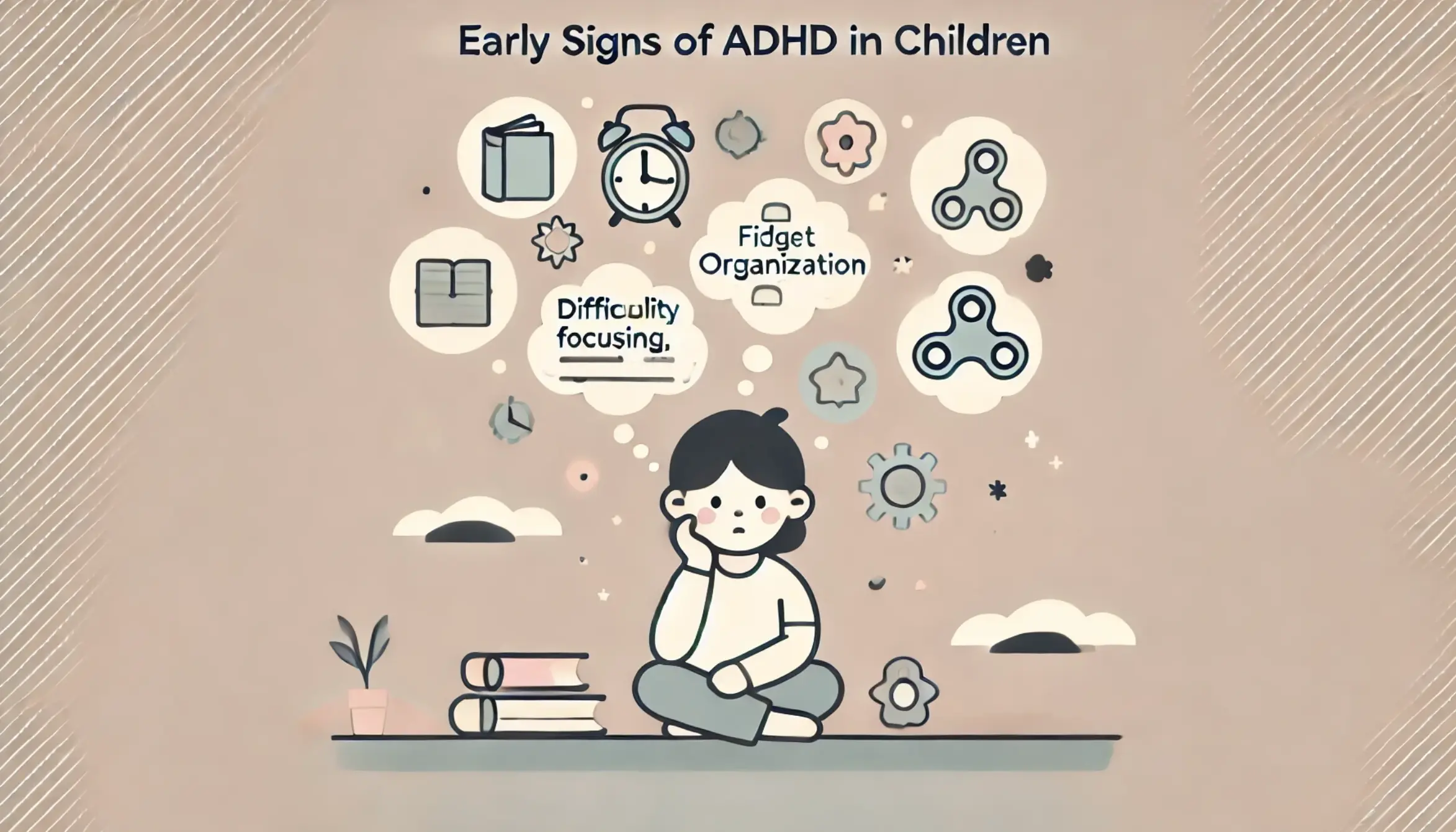Anxiety disorders, common yet intricate, impact countless lives. The key to their accurate diagnosis lies in a comprehensive psychological anxiety evaluation. Such assessments provide invaluable insights by delving into a person’s thoughts, emotions, and behavioral patterns.
They confirm the presence of an anxiety disorder and help differentiate between various subtypes, guiding tailored treatment approaches. Psychological evaluations empower individuals by unraveling underlying triggers, offering a roadmap to recovery.
This article explores how this diagnostic tool serves as a beacon of understanding, illuminating the path toward effective management and a brighter, anxiety-free future.
Understanding Anxiety Disorders

Anxiety disorders are complex mental health conditions characterized by excessive worry, fear, and apprehension. These disorders can significantly impact a person’s daily life, relationships, and well-being. Social anxiety disorder, GAD (generalized anxiety disorder), panic disorder, and particular phobias are among the most common types of anxiety disorders.
It’s crucial to recognize that anxiety disorders are not simply a result of personal weakness but instead arise from genetic, environmental, and neurological factors. Symptoms vary widely and manifest as physical sensations, emotional distress, and cognitive challenges.
Effective management often involves a combination of therapies, such as cognitive-behavioral therapy, medication, and lifestyle changes. Raising awareness about these disorders helps reduce stigma and encourages individuals to seek help, fostering a more compassionate and informed society.
The Spectrum of Anxiety Disorders
The spectrum of anxiety disorders encompasses various mental health conditions, each characterized by distinct distress patterns. Generalized anxiety disorder (GAD) involves chronic worry and apprehension about multiple aspects of life.
Obsessive-compulsive disorder (OCD) leads to intrusive thoughts and repetitive behaviors to alleviate anxiety. Panic disorder & agoraphobia (PD) entails sudden, intense panic attacks and the fear of situations that might trigger them.
Post-traumatic stress disorder (PTSD) emerges after exposure to traumatic events, causing flashbacks and emotional numbing. Specific phobias generate intense fears of particular objects or situations. Social phobia involves overwhelming anxiety in social settings.
Perfectionism can also be a form of anxiety, where excessive standards induce constant worry about making mistakes. Understanding this spectrum helps raise awareness about the breadth of anxiety disorders, reducing stigma and encouraging individuals to seek appropriate support and anxiety disorder evaluation for their unique challenges.
Prevalence and Impact on Daily Life

Anxiety disorders are prevalent worldwide, affecting millions of people across diverse demographics. Their impact on daily life is profound, often disrupting routine activities, relationships, and overall well-being.
Individuals with anxiety disorders commonly experience heightened stress, persistent worry, and physical symptoms like rapid heartbeat, elevated blood pressure, and restlessness. This can lead to difficulties in concentration, work performance, and social interactions. Sleep disturbances and physical health issues may also arise.
Anxiety disorders’ prevalence and wide-ranging impact emphasize the urgent need for greater awareness, understanding, and accessible mental health support. Addressing these afflictions by visiting an anxiety psychologist improves individual lives and builds a more empathetic and supportive society prioritizing mental health and well-being.
Role of Psychological Evaluation in Diagnosis

Psychological evaluation is a crucial aspect to accurately diagnosing various mental health conditions, including anxiety disorders. Through a comprehensive assessment, trained professionals can gather essential information about a person’s thoughts, emotions, behaviors, and life history.
This process involves interviews, questionnaires, and standardized tests to uncover underlying factors contributing to the individual’s distress.
In evaluating anxiety disorders, psychological evaluation helps differentiate between various types of anxiety and potential coexisting conditions. It also aids in ruling out medical causes and providing a tailored treatment plan.
This thorough evaluation ensures a precise diagnosis, allowing targeted interventions and improved outcomes. In addition, it promotes a holistic understanding of influential past experiences that may be affecting an individual’s mental health, fostering a more effective and compassionate approach to treatment and support.
Importance of Accurate Diagnosis
Diagnosis of anxiety disorders is vital for several reasons. Firstly, it ensures that individuals receive the appropriate treatment tailored to their specific condition, improving their chances of recovery.
Misdiagnosis can lead to ineffective treatments or unnecessary medications, exacerbating symptoms and causing unnecessary side effects.
Secondly, accurate diagnosis reduces the stigma surrounding mental health issues by validating patients’ experiences and highlighting the legitimacy of their struggles.
This encourages individuals to seek help without fear of judgment, promoting early intervention and better outcomes.
Moreover, precise diagnosis aids in research, enabling scientists to understand the nuances of different anxiety disorders, develop better treatments, and enhance our overall understanding of mental health. Ultimately, accurate diagnosis benefits individuals and contributes to a more compassionate and informed society.
Components of a Comprehensive Evaluation
A comprehensive evaluation for anxiety disorder encompasses multiple components essential for thoroughly understanding an individual’s mental health. Firstly, clinical interviews delve into the person’s history, symptoms, and experiences, providing valuable context.
Psychological assessments involving standardized questionnaires and tests offer quantitative insights into their cognitive and emotional functioning.
A medical history review also helps identify potential physical causes or contributing factors. Observations of behavior and interactions can provide further clues. Social and environmental factors, such as family dynamics and life stressors, are crucial.
Finally, considering cultural nuances ensures a holistic perspective. Integrating these components aids in forming an accurate diagnosis, crafting an individualized treatment plan, and promoting overall well-being. A comprehensive evaluation is a cornerstone of effective mental health care, addressing the complexity of each individual’s unique experience.
Interpreting Evaluation Results
Interpreting anxiety evaluation results in the context of mental health assessments requires a nuanced approach. Professionals analyze collected data from interviews, tests, and observations to form a comprehensive understanding.
Through evaluations, patterns, severity, and potential underlying causes of symptoms are identified, aiding in more accurate diagnosis. Careful consideration of individual differences, cultural backgrounds, and personal context is essential to avoid misinterpretation. Interpreting results involves comparing findings to established criteria and norms while acknowledging the complexity of each case.
A well-informed interpretation guides treatment planning, ensuring tailored interventions for specific needs. It also fosters effective communication between professionals, patients, and their support networks, enabling collaborative decision-making for the best possible outcomes in managing conditions like anxiety disorders.
Distinguishing Between Different Anxiety Disorders
Distinguishing between different anxiety disorders is crucial for precise diagnosis and targeted treatment. Generalized anxiety disorder (GAD) involves excessive worry about various life aspects, while obsessive-compulsive disorder (OCD) features intrusive thoughts and ritualistic behaviors.
Panic disorder involves sudden, intense panic attacks, often accompanied by agoraphobia, a fear of triggering situations.
Post-traumatic stress disorder (PTSD) stems from traumatic events, causing flashbacks and emotional distress. Specific phobias entail intense fear of particular objects or situations, while social phobia involves anxiety in social contexts.
Distinguishing these disorders requires careful consideration of symptom duration, intensity, and functional impairment. A precise diagnosis aids in tailoring cognitive-behavioral therapies, medications, and lifestyle interventions that address the unique characteristics of each disorder, promoting effective symptom management and improved quality of life.
Identifying Underlying Contributing Factors
Identifying underlying contributing factors is vital in understanding the development and maintenance of anxiety disorders. Biological factors such as brain chemistry and inherited genetics can predispose individuals to heightened anxiety. Environmental influences, including traumatic experiences or chronic stress, can trigger or exacerbate symptoms.
Psychological aspects, like learned behaviors or maladaptive thought patterns, play a role. Cultural and social factors also shape how anxiety is experienced and expressed. Exploring these factors within a person’s life context provides a holistic understanding.
It informs treatment strategies by targeting specific triggers and addressing root causes. A comprehensive evaluation considers these multifaceted influences, allowing for a tailored approach that recognizes the individuality of each person’s anxiety experience and supports their journey toward recovery.
Advancing Mental Health: Innovations in Testing for Anxiety Disorders
Understanding anxiety disorders goes beyond mere recognition; it’s about embracing the variations of each individual’s experience. From the intricate spectrum of disorders to the role of psychological evaluations, we’ve uncovered the key to accurate diagnosis and effective treatment.
For those seeking expert assistance, APS offers a beacon of hope. Their dedicated team specializes in assessing and addressing anxiety disorders with precision and compassion.
By leveraging their expertise, you can take the vital step towards managing your anxiety and reclaiming your well-being. Reach out to APS to embark on a path of understanding, healing, and growth. Your mental health matters, and you deserve the support you need.





